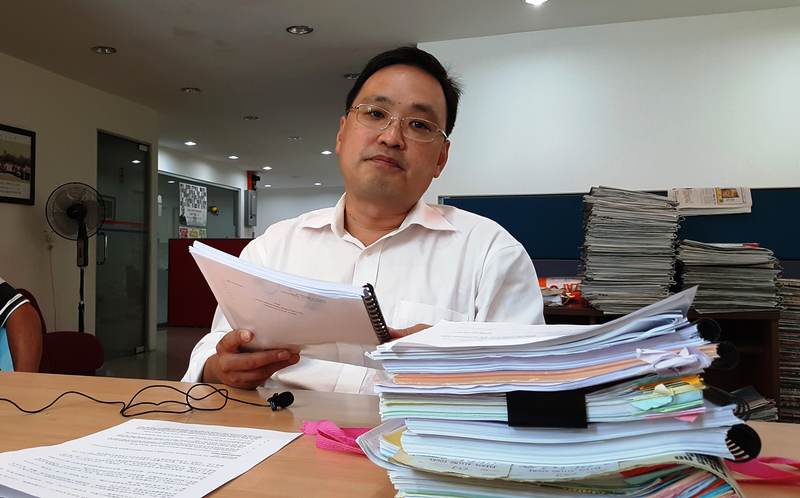KUCHING, May 8 — Sarawak lawmaker Chong Chieng Jen believes the negatives will far outweigh the positive economic impact in removing the 30-year-old cabotage policy for East Malaysia.
The Bandar Kuching MP claimed about 50 per cent of the 3,000 Sarawakians working in the shipping industry and as forwarding agents will likely lose their jobs within the year once the exemption, announced to take effect from June 1, is fully implemented.
“Chief Minister Datuk Amar Abang Johari Openg is ignorant of what are happening on the ground as far as the shipping industry is concerned when he called for the abolition of the policy,” Chong told reporters here today.
He said he supported a call made by the Sarawak and Sabah Ship-owners Association and Sarawak Shipping Association yesterday for the government to review its decision to exempt Sabah, Sarawak and the federal territory of Labuan from the cabotage policy introduced in the 1980s.
Chong said the ship-owners are concerned that they have to compete with the foreign vessels in transporting cargoes from the peninsula to Sarawak.
He said with the abolition of the policy, foreign vessels will be allowed to transport cargoes originally from the peninsula to Sarawak, which at present they are not allowed.
“Allowing the foreign vessels to transport cargoes between the peninsula and Sarawak will ultimately affect the local shipping industry,” he said.
Chong said there is no good reason to abolish the policy since foreign vessels from China, Hong Kong and the Middle East have been allowed to transport their cargo to Sarawak ports without needing to go to Port Klang in Selangor first.
He also rejected claims that abolishing cabotage would lead to cheaper imported goods as it avoided doubling handling costs.
“The abolition of the policy will also not necessarily lead to cheaper prices of goods as claimed by the government,” he said.
Chong, who is also Sarawak DAP chairman, said shipping costs “may be a bit expensive, but as a whole do not add much to the costs of imported goods [in Sarawak] because these goods have already been imported direct from China”.
He insisted that the increasing prices of imported goods is due to the depreciation of the ringgit against the currencies of Malaysia’s main trading partners, particularly China.
“Therefore, the abolition of the cabotage policy will not generally benefit the people and reduce their burden of the high cost of living as claimed by the government,” he added.
He also claimed that the privatisation of stevedoring services by the Kuching Port Authority also led to higher prices of imported goods, but which he did not substantiate.
* Editor's note: MP Chong Chieng Jen has since clarified to Malay Mail Online that he was referring to the Sarawak shipping industry and not the larger Malaysian industry as previously reported.



















